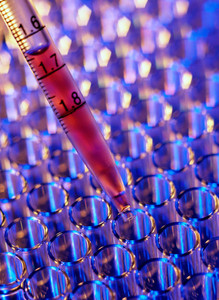Belgian companies SYnAbs and Univercells announced on 20 April 2019 the signing of a service agreement for an undisclosed monoclonal antibody biosimilar.
Belgian companies make biosimilars agreement
Home/Pharma News
|
Posted 26/04/2019
 0
Post your comment
0
Post your comment

Under the terms of the agreement, contract research organization (CRO) SYnAbs will develop an immuno-assay in order to measure features of a biosimilar monoclonal antibody developed by Univercells.
The aim of the collaboration is to test the batch-to-batch variability of the biosimilar from Univercells and to confirm its biosimilarity compared to the originator biological. In order to do this SYnAbs will develop a custom enzyme-linked immunosorbent assay (ELISA), which it says will be a sandwich-type enzyme immunoassay ELISA in which the biosimilar binds to the antigen on the microtiter plate and a biotinylated anti-idiotype antibody recognizes the complex.
The recognized antigen will be produced in an Escherichia coli (E. Coli) expression system by RD Biotech – SYnAbs sister company, based in France. SYnAbs will then determine the best conditions for the antibody pair and will optimize the different features of the assay, including but not limited to, the best suited ELISA plate, coating conditions, denaturing agents, antigen and antibody concentrations, and incubation time.
At the end of the process, Diaclone – another sister company of SYnAbs, also based in France – will then perform a bioassay efficacy testing in order to check the antibody activity on cells through EC50 measurement.
Back in January 2018 Univercells received a grant worth Euros 2.4 million (US$2.9 million) from the Wallonia Region (Service public de Wallonie - Direction générale opérationnelle de l'Economie, de l'Emploi, de la Formation & de la Recherche [DGO6]). This funding was given in order to enable the company to launch a programme aimed at the development of its innovative protein platform, paving the way for the cost-effective production of biosimilars. The company also raised Euros 3 million (US$3.56 million) capital in a Series-A equity financing round, led by private investors and has received a US$12 million grant from the Bill & Melinda Gates Foundation and Euros 3 million from Takeda.
Related articles
AbbVie and Coherus sign licensing deal for Humira biosimilar
Sandoz makes biological deal in China
Permission granted to reproduce for personal and non-commercial use only. All other reproduction, copy or reprinting of all or part of any ‘Content’ found on this website is strictly prohibited without the prior consent of the publisher. Contact the publisher to obtain permission before redistributing.
Copyright – Unless otherwise stated all contents of this website are © 2019 Pro Pharma Communications International. All Rights Reserved.
Source: SYnAbs, Univercells
Guidelines
US guidance to remove biosimilar comparative efficacy studies
New guidance for biologicals in Pakistan and Hong Kong’s independent drug regulatory authority
Policies & Legislation
EU accepts results from FDA GMP inspections for sites outside the US
WHO to remove animal tests and establish 17 reference standards for biologicals
Formycon signs new aflibercept biosimilar pacts and launches ranivisio in Europe

Home/Pharma News Posted 13/11/2025
Bio-Thera and Stada expand biosimilars alliance to include tocilizumab

Home/Pharma News Posted 20/10/2025
The best selling biotechnology drugs of 2008: the next biosimilars targets








Post your comment